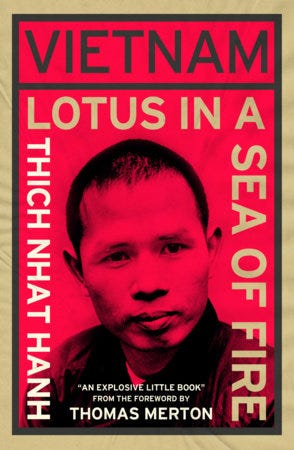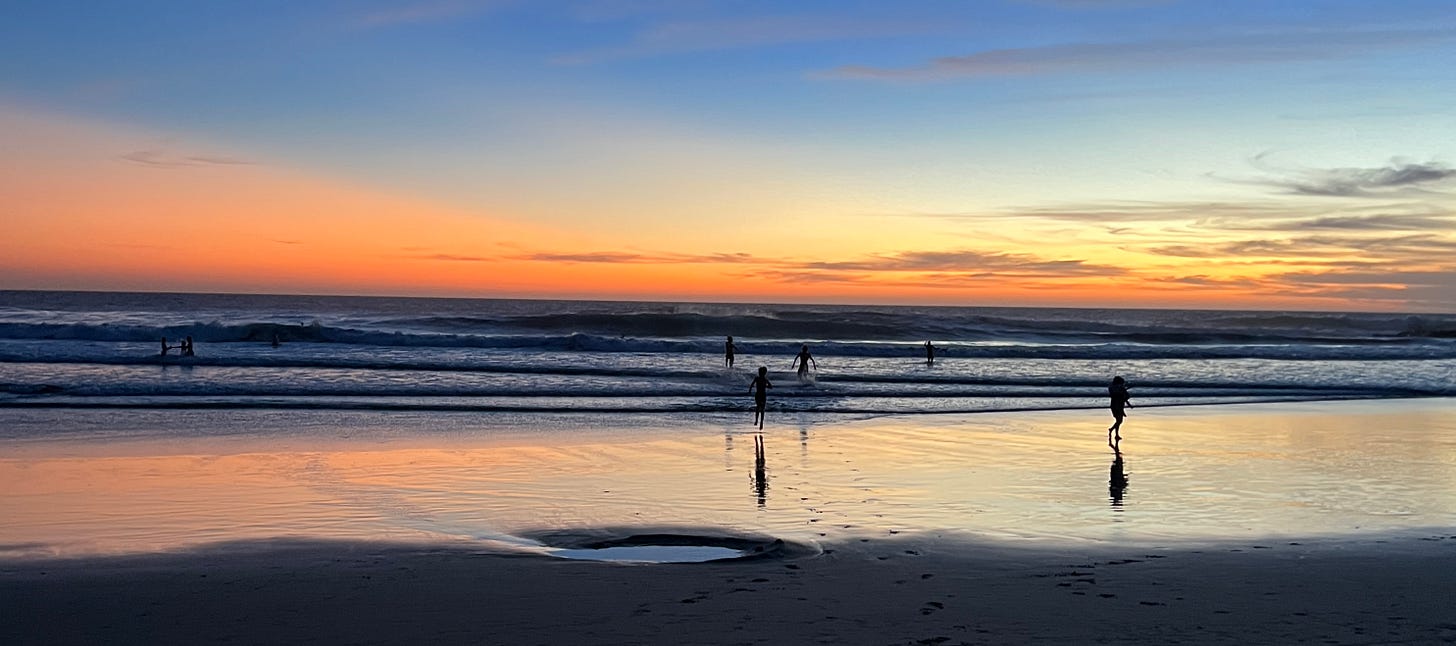TGIF :: Struggle & Emerge
Weekly drop #44 || 🙏🏼 for the member of this community who reminded me of this precious awareness
Thank you for reading. I am grateful for your support, your reactions that help my newsletter be more discoverable, and for your communications letting me know something I’ve shared here has impacted you in some way.
I’ve been hosting monthly ClearLife Sangha Saturdays (in person in Mill Valley, CA and via Zoom) for several months now. We don’t talk about “sobriety” or “recovery” and despite the theme of finding community in navigating our own version of ClearLife, we don’t even hear the words “alcohol” or “drinking” in some. These are hours in which we can find a moment of stillness and community—relatability on a quiet morning amidst the rest of it all. Some of us attempt to put words to feelings, observations, and experiences while others just take it all in. I always learn something. Last week was no exception.
On Saturday, after leading a brief meditation, I broadly referenced some of the challenges I am facing opportunities I am navigating with my intelligent, somewhat defiant, deeply lovable teenage son.
One of you, after your own reflections about some family dynamics you’re experiencing, shared that your adult kids are often asked how they were parented as all three, now in their twenties “are doing quite well for themselves.” What a compliment. #goals
Best to not try to “save” them
In response, her now adult kids, note that one of the keys to their success is that their parents let them struggle and emerge. The kids made mistakes, faced the consequences of their mistakes (without being “saved”), and emerged. Again and again—and again.
I love this. It’s Parenting 101, and we hear it all the time. “Let them stumble. Let them learn. Let them experiences the consequences of their mistakes.” It’s a mantra that starts in second grade “back to school” classrooms, butts perched on tiny plastic chairs. It’s something we struggle with, this generation of helicopter parents, trying so desperately to do it all differently than our somewhat aloof, hands-off parents who raised us without seatbelts, tutors, or “nutrition information” of any kind.
No matter the reason or generation, it’s human nature to want to save our loved ones from suffering. We can see what we think needs to happen, we want to help the people we care about struggle less, and we think we know how to provide relief. Yet often what our beloveds need the most is nothing—they need to fall, fail, or live in the mess they’ve made so that perhaps next time, they’ll make better decisions.
I assure you, being “in it” as a mom to a strong-willed teen is varsity level training in these truths. We want to help our kids (and loved ones) when they get themselves into a mess. We want to stay connected, because we love them to pieces and know they’ll launch soon—staying close bodes well for future years of relationship, we hope. Yet there’s an edge in here too, one I’ve been grappling with for a while: I can finally admit that I also want to be liked, and this inclination can spark reactions that directly conflict with what our kids need from their parents in these more complicated years: a strong and clear parent. It turns out that a lot of the time, the most loving thing we can do is catch ourselves leaning in with open hands—trying to catch whatever it is that’s falling—and stop. Step back. Love them to pieces, but also let them struggle. Let them learn. Trust they will emerge.
Essential suffering
This notion of struggle as a form of nourishment, learning, and loving support applies not only to parenting, but throughout the web of relationships that nets us all together. We can all think of a difficult time we had to endure to become the humans we are, sitting and reading this, today. I carried some gems on this theme from some of the beautiful teachings offered by Roshi Joan Halifax recently:
“We need mud, fire, from which to bloom.”
She was referencing this little known book, from Thich Nhat Hanh, his first (1967):
As war raged in Vietnam, Thich Nhat Hanh became a leading figure in the Buddhist peace movement. With the help of friends like Thomas Merton, he published Vietnam: Lotus in a Sea of Fire in 1967 in the US (and underground in Vietnam as Hoa Sen Trong Biển Lửa), his uncompromising and radical call for peace. It gave voice to the majority of Vietnamese people who did not take sides and who wanted the bombing to stop.1
My heart quivers comparing these historic struggles with those of a safe and secure family navigating the challenges of raising adolescents, yet as his teachings evolved, so did their applicability to the human experience of suffering generally, regardless of its depth or type.
Years later he wrote:
We should not be afraid of suffering. We should be afraid of only one thing, and that is not knowing how to deal with our suffering. Handling our suffering is an art. If we know how to suffer, we suffer much less...
From The Art of Living (2017)
So our opportunity remains to learn how to handle our suffering, and if someone is always there to save us from it, we’ll never learn to suffer less.
Striking the balance
Back to Roshi Joan’s teachings that day, she continued:
“The question is, what is the appropriate amount of suffering for you? We want to strengthen, not harm or destroy.”
This is the question. The opportunity is to be attuned to ourselves and others via intuition, observation, and discernment—and know when it is time to step in with relief or let the fire burn until what is needed emerges from the heat.
Parenting, ClearLife, same-same, different-different
How can we strike this balance in ourselves, and with others?
One of the key awarenesses, #3: Intuition: My intuition defines my priorities and I pursue a life that reflects them, provides guidance. The key offering here is that we will struggle to access this superpower if we are dimming ourselves with booze, spending, work, sex, pot, or any other thing used in an escapist manner. Our intuition, when accessed with a clear mind and heart, helps us know when it is time to move in to help or step away and let someone struggle. Part of this journey is trust, allowing someone the space to weather their own storm and emerge in the state of transformation they need.
“If you know how to make good use of the mud, you can grow beautiful lotuses.”
Thich Nhat Hanh, from No Mud, No Lotus (2014)
This is among one of the toughest features of this path, knowing when to leave someone alone. When trying to love someone in an addictive or self-harm loop, there is little as painful as watching a loved one hurt themselves with whatever it is that provides short term relief. In fact, they are both suffering and attempting to suppress their suffering. We want to help, we desperately hope they will emerge, not all do.
Practices
In Self. Is there a struggle that you’re enduring in some way? This could be relational, within ourselves, or in connection with a specific area of our lives such as work, home, or health. Instead of reaching for relief (distraction, dimming, suppression), or asking for help (unless you really need it), allow some space to simply experience it. Notice your feelings, your resistance, any tendency to blame others, or inclination to deny what’s happening. This can be a few breaths or a longer period sitting—or even on a walk. For me this week, it was lying down with headphones on for an hour and just noticing it all. When I emerged, I was far more present for my family and available for my ongoing writing project. Maybe the less we fight off the experience, the less of a struggle (and suffering) there actually is.
In Others. Most of us have people in our lives who are going through something difficult. Maybe we can even feel their experience ourselves. In my case it’s a tug at my heart center, like a shortness of breath, calling me to step in somehow. I often do. That’s called Love. But sometimes, such as in the context of parenting, or when trying to support someone navigating an addiction, our opportunity is to step back. Let them know we are there when they need us, in certain ways, but let them have their own struggle. Are there people in your life that you continue to try to help yet they are not helping themselves—so patterns continue? Or people who resist the Love you want to give as they are still learning to love themselves? The invitation is to deeply attune to our own capacity, find the delicate balance between avoidance and excessive meddling, check our motivations, and engage from that place of presence.
Making good decisions
Experiencing a loved one struggle is like nothing else. The period of not knowing what to do can be torturous. I’m learning that what can be even worse, is recognizing that in stepping in with hopes of providing relief, we might actually be extending or deepening their suffering. May we all experience a dose of self-grace as we navigate this tricky terrain.
And yeah… I definitely witnessed my teenager go through it a bit this week. Equipped with the reminder to allow a certain amount of struggle, more than I might naturally, I did my best to step back more than usual. I granted a bit more space. I resisted the temptation to inquire and meddle. …and dare I say, I saw him make at least one very good decision in the last 24 hours. Maybe, just maybe, I’m seeing this bright light of a being emerge a bit.
Sigh.
Love. ❤️
Miscellaneous….
Sangha Saturdays… The next in-person version will be Saturday February 24th at 9am PT in Mill Valley, CA. The next Zoom version will be Saturday March 9th at 9am PT. RSVPs required. If you’d like to join, please indicate your interest here and you’ll be added to the (anonymous) calendar invitations. 🌟
Favorite Substacks? I’ve found a few new favorite writers recently, including
who’s prose is seductive, insightful, and gentle at once. So glad our first meeting was in 3D in a magical place she describes in a way that helped me re-experience it from afar. 💖No TGIF Next Week… as I’ll be emerging (maybe after some struggle :) from an immersive, screen-free week as a participant in The Hoffman Process. I look forward to sharing a bit about that in time, as this feels like one of my final inner work deep dives for a while. As a dear teacher reminded me lately: “At a certain point we get to pause our pursuit of happiness and just be… happy.” 🎋





So true, so hard, and so important!